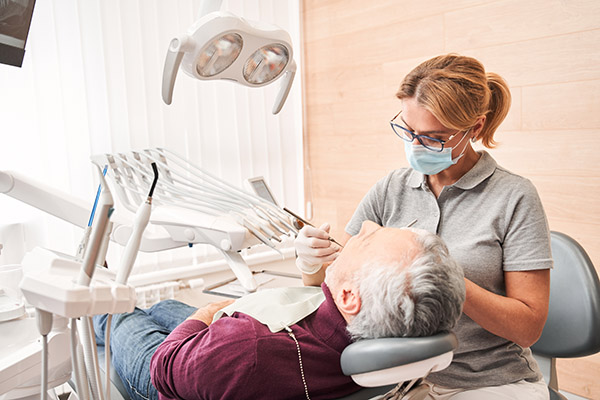 The cosmetic appeal of dental crowns rests on their ability to sheathe natural teeth. A dental crown is also a custom restoration, meaning that it fits the underlying tooth like a glove. It covers the visible part of the tooth, from the biting surface to the base.
The cosmetic appeal of dental crowns rests on their ability to sheathe natural teeth. A dental crown is also a custom restoration, meaning that it fits the underlying tooth like a glove. It covers the visible part of the tooth, from the biting surface to the base.
These qualities make a dental cap one of the most effective protective restorations there is.
Dental crowns: Restorative dentistry and aesthetics
A dentist will remove infection and tissue damage before they reinforce the tooth with a restoration. The ideal restoration will then restore the size, shape, and function of the problem tooth.
The only downside to a crown is the removal of a layer of enamel, which never regenerates. This should be a consideration for anyone looking to get a dental cap for cosmetic reasons. That being said, a cap will cover up the type of cosmetic problem that no other restoration can.
Dentists recommend crowns when they feel it is the best treatment option for their patients. For example:
Crowns reinforce the weak structure of a problem tooth
Tooth decay and injury can weaken a tooth to the point where it starts to fall apart. A dental cap sheathes the structurally compromised tooth and protects it from pressure and stress. This keeps the structure of the underlying tooth intact, saving it from extraction.
The crown also restores the full form and function of the tooth. This eliminates the patient’s need to change their bite to protect the problem tooth. The happy result is the restoration of a healthy bite.
A dental cap is an effective physical barrier
Dental caps fit like a glove and they sit snugly on the gumline. A crown forms an impenetrable barrier that protects the vulnerable inner tooth from exposure to:
- Heat and cold
- Sugar and acid
- Food particles
- Bacteria
Heat and cold cause discomfort and sometimes, pain. The same goes for sugar and acid, except that these substances also erode the enamel. Keeping food particles and bacteria from a weak tooth prevents tooth decay from happening or developing further.
A dental cap helps with oral hygiene
Dentists will clean out injured or infected tissue before installing a crown. The crown will keep food and bacteria from reaching the natural tooth, thus keeping the tooth clean.
Situations where a dental crown may fail
Tooth decay can reoccur on a tooth that sits under a crown. The reasons for this range from failed root canal therapy to gum disease. In such cases, the dentist will remove the crown, treat the problem tooth, and place a suitable dental restoration, usually a crown.
Ready to set an appointment?
Our practice boasts an excellent team that provides preventative, restorative, and cosmetic dental care. Get in touch to find out how we can restore your smile in a few simple steps. Meet with our dentist to find out whether dental crowns are the treatment option for you.
Request an appointment or call R. David Brumbaugh, DDS at 214-306-4402 for an appointment in our Dallas office.
Related Posts
Dental crowns are durable and effective for restoring damaged or weakened teeth. They improve the tooth's structure and function while also enhancing your smile's appearance. However, proper maintenance can extend their lifespan and ensure long-term oral health. With the right care, these restorations can last several years, providing a reliable and aesthetically pleasing restoration.A consistent…
Dentists use dental crowns to preserve the integrity of the remaining natural dental structure. There are cases when cavities keep getting worse. Lack of routine dental checkups and poor dental care can lead to deeper cavities. This often leads to larger fillings with each dental check. If you want to know how dental crowns can…
Curious about whether you need a dental crown after a root canal? Read on to learn more. Many patients believe that a root canal is a painful procedure and therefore avoid it. In cases of seriously damaged or infected teeth, root canals are the last resort to prevent an extraction. After the root canal treatment,…


